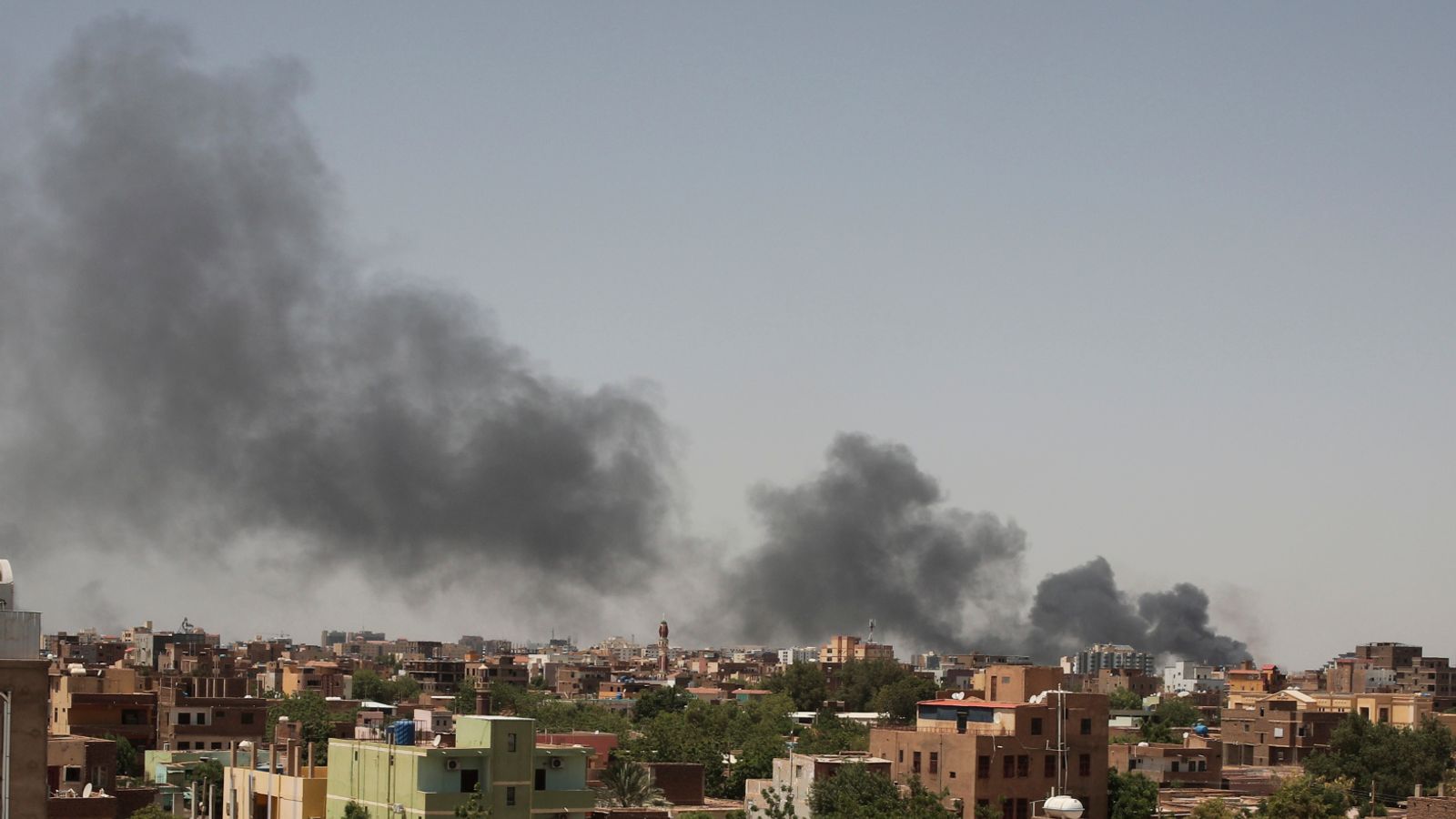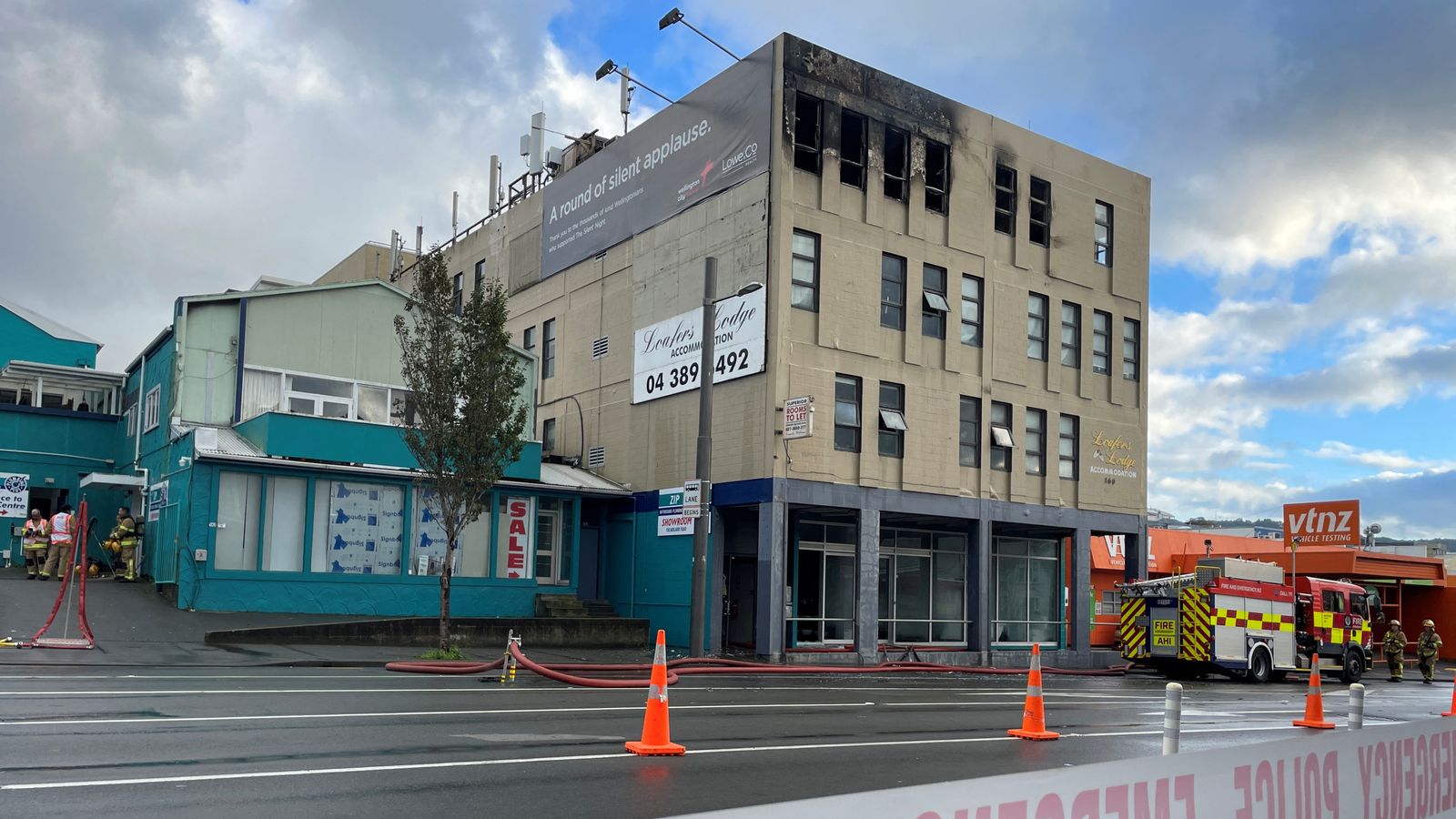UK diplomats and their families have been evacuated from the Sudanese capital Khartoum after a “significant escalation in violence”, Rishi Sunak has said.
The prime minister also said he was working to ensure British citizens who are still in the country are safe.
He said the evacuation of diplomats and their loved ones was “complex and rapid” and came amid threats to embassy staff.
More than 1,200 personnel from 16 Air Assault Brigade, the Royal Marines and the RAF were involved in the “difficult operation”.
Mr Sunak urged the warring sides to lay down their arms and “implement an immediate humanitarian ceasefire to ensure civilians can leave conflict zones”.
UK troops and military aircraft had earlier been moved to an overseas base to prepare for the high-risk rescue mission into an active conflict zone.
Britons are appealing to be taken out of the country to escape the fighting.
Sudan latest: Desperate plea for help from trapped Britons; details of ‘complex and rapid’ evacuation of UK diplomats revealed
Ukraine war latest: Russia launches huge drive for recruits; Black Sea grain export deal under threat
Ukraine will struggle to win the war and Russia will struggle to lose, increasing pressure for a negotiated solution
William, a British national in Khartoum who has been in the country for six years, told Sky News: “I’m sitting in my chair in my living room, listening to a background of shooting probably 3km away.”
“I’m as safe as anybody can be in Khartoum at the moment.”
He added: “The end game is here now. We feel we need to get out. Were very concerned there is nothing happening it seems. We don’t know if this is some wonderful cunning plan that the British government is pursuing.
“It is an extremely concerning situation that’s deteriorating further and further. And the imperative is to get out of Khartoum.
“The favourite route seems to be over land towards Egypt but otherwise we haven’t got any way of doing that at the moment.”
Please use Chrome browser for a more accessible video player
It comes as France, the Netherlands, Belgium and other allies were getting their diplomats and citizens out, hours after US special forces airlifted all American staff from their embassy in Khartoum.
On Saturday, about 70 American nationals were flown from a landing zone at the embassy to an undisclosed location in Ethiopia, an unnamed US official said, speaking on the condition of anonymity due to the sensitive nature of the mission.
But the White House said it has no plans for a government-coordinated evacuation of American citizens trapped there.
The US embassy said “due to the uncertain security situation in Khartoum and closure of the airport, it is not currently safe to undertake a US government-coordinated evacuation of private US citizens”.
Speaking about the crisis on Sky News’ Sophy Ridge on Sunday programme, Deputy Prime Minister Oliver Dowden said the situation was “rapidly moving” and “complex”.
“Our priority is to support British nationals,” Mr Dowden said.
Embassy evacuations conducted by the US military are relatively rare and usually take place only under extreme conditions.
President Joe Biden ordered the evacuation of US embassy staff after receiving a recommendation on Saturday from his national security team with no end in sight to the fighting.
Be the first to get Breaking News
Install the Sky News app for free
Hundreds dead in past week
According to the World Health Organization, fighting between forces loyal to two top generals has killed more than 400 people since erupting on 15 April.
The violence has included an unprovoked attack on a US diplomatic convoy and numerous incidents in which foreign diplomats and aid workers have been killed, injured or assaulted.
An estimated 16,000 US citizens are registered with the embassy as being in Sudan, although that figure is probably inaccurate because there is no requirement for Americans to register or notify the embassy when they leave.
The conflict between the armed forces, led by General Abdel Fattah al Burhan, and the Rapid Support Forces (RSF), led by General Mohammed Hamdan Dagalo, has derailed Sudan’s transition to democratic rule after decades of dictatorship and civil war.
The fighting erupted in Khartoum and other parts of the country on 15 April, four years after long-ruling autocrat Omar al Bashir was toppled during a popular uprising.








